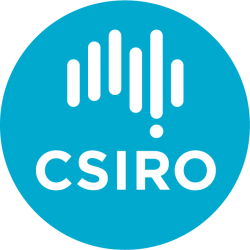CSIRO Postdoctoral Fellowship in Moth Taxonomy and Systematics
- Great opportunity for an early career researcher with a PhD in biology, entomology or evolution and systematics
- Work in a team environment using state-of-the-art equipment on site and in the field
- Lead an exciting project whilst working with lepidopterists, botanists, molecular systematists and bioinformaticians
Acknowledgement of Country
CSIRO acknowledges the Traditional Owners of the land, sea and waters, of the area that we live and work on across Australia. We acknowledge their continuing connection to their culture and pay our respects to their Elders past and present. View our vision towards reconciliation
Child safety
CSIRO is committed to the safety and wellbeing of all children and young people involved in our activities and programs. View our Child Safe Policy.
The opportunity
- Great opportunity for an early career researcher with a PhD in biology, entomology or evolution and systematics
- Work in a team environment using state-of-the-art equipment on site and in the field
- Lead an exciting project whilst working with lepidopterists, botanists, molecular systematists and bioinformaticians
CSIRO Early Research Career (CERC) Postdoctoral Fellowships provide opportunities to scientists and engineers who have completed their doctorate and have less than three years of relevant postdoctoral work experience. These fellowships aim to develop the next generation of future leaders of the innovation system.
The ABRS-funded research project “Uncovering hidden diversity: taxonomic revision of Australian Heliozelidae” supports the study of Australian moths in the family Heliozelidae by the CERC Fellow. It is an opportunity for someone with existing experience in the taxonomy of Lepidoptera to shape and carry out an integrative taxonomic revision, which will bring together morphology, molecular phylogenetics and species delimitation, biological data and modern biodiversity survey methods. The work will be carried out in a team environment and include use of state-of-the-art equipment at CSIRO, fieldwork and presenting results at international conferences.
This project will (1) use molecular, morphological and biological data for an integrative taxonomic revision of Australian Heliozelidae. This will include placement of Australian genera in a global context and description of at least 8 new genera, 60 new and 37 named Australian species (as judged on the basis of preliminary data). The project will (2) generate vouchered DNA reference sequences for all species and (3) utilise them for eDNA surveys to identify heliozelid caterpillars in flowers for co-evolutionary studies and to uncover hidden diversity.
The CERC Fellow will have the lead and carry out most of the project, but also work closely with lepidopterists, botanists, molecular systematists and bioinformaticians. The eDNA work will be carried out by an Honours student under the co-supervision of the CERC Fellow.
The CERC Fellow will work to the milestones set by a 3-year contract between the ABRS and CSIRO.
Your duties will include:
- Examining moth specimens at natural history collections, making loans as needed
- Recording specimen metadata.
- Travelling both domestically and internationally.
- Documenting the habitus with high-resolution images.
- Making and documenting microscope slide presentations of wings and genital structures.
- Publishing taxonomic revisions of moth genera in peer-reviewed journals.
Location: Black Mountain, ACT (with Melbourne, VIC a possible alternative)Salary: AU$96k – AU$105k plus up to 15.4% superannuationTenure: Specified term of 3 yearsReference: 97706
To be considered you will need:
- A doctorate (or will shortly satisfy the requirements of a PhD) in a relevant discipline area, such as biology, entomology, evolution and systematics. Please note: To be eligible for this role you must have no more than 3 years (full-time equivalent) of postdoctoral research experience.
- Experience with taxonomic revisions.
- Experience with the study of morphology.
- Experience with molecular laboratory work.
- Experience with phylogenetic analyses.
For full details about this role please view the Position Description
Eligibility
Applications for this position are open to Australian/New Zealand Citizens, Australian Permanent Residents and Australian temporary residents currently residing in Australia (visa sponsorship may be provided to eligible onshore candidates). Appointment to this role is subject to provision of a national police check and may be subject to other security/medical/character requirements.
Flexible working arrangements
We work flexibly at CSIRO, offering a range of options for how, when and where you work.
Diversity and inclusion
We are working hard to recruit people representing the diversity across our society, and ensure that all our people feel supported to do their best work and feel empowered to let their ideas flourish.
About CSIRO
At CSIRO Australia’s national science agency, we solve the greatest challenges through innovative science and technology. We put the safety and wellbeing of our people above all else and earn trust everywhere because we only deal in facts. We collaborate widely and generously and deliver solutions with real impact.
CSIRO is committed to values-based leadership to inspire performance and unlock the potential of our people.
Join us and start creating tomorrow today!
How to apply
Please apply on-line and provide a cover letter and CV that best demonstrate your motivation and ability to meet the requirements of this role.
Applications close
14 October 2024, 11:00pm AEDT

